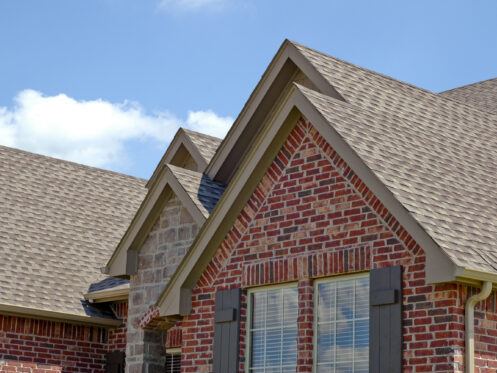Saving money on energy bills is a top priority for budget-conscious households. Record-high temperatures across the country have caused energy costs to soar to unprecedented levels during the 21st century. According to the Consumer Price Index Summary, the average electricity bill rose 14% and gas bills rose 19% between December 2021 and December 2022. Fortunately, there are smart ways to cut energy costs without drastically changing your lifestyle.
Request an Energy Audit
Many homeowners want to reduce energy bills but don’t know where to start. Is the air conditioner or water heater working too hard? Do any appliances need a replacement? A professional energy audit is the first step in lowering your bills. During an energy audit, a technician performs a room-by-room examination of your home to determine the sources of high energy usage. For example, an inspector might check for air leaks, poor insulation, or inefficient appliances. The technician will then offer suggestions on how to decrease energy usage.
Adjust Your Thermostat
One of the easiest ways to impact your energy bill is to adjust your thermostat. According to the U.S. Department of Energy, you can reduce your usage by up to 10% by adjusting your thermostat by 10 degrees for eight hours daily. The simplest way to experiment with this method is to adjust the thermostat setting for times when no one is home. The Department of Energy recommends the following energy-saving settings as general guidelines:
- 78 degrees Fahrenheit during the day if residents are home
- 85 degrees Fahrenheit during the day if no residents are in the home
- 82 degrees Fahrenheit at night while everyone is asleep
Of course, these settings may still feel a bit warm during instances of extreme weather. You can start by moving the thermostat a few degrees at a time until your household becomes more accustomed to the new settings.
Consider Getting a Smart Thermostat
A smart thermostat is a programmable unit that allows you to preset your household temperature to the recommended settings. These energy-saving units adjust to your desired temperature automatically, removing the hassle of getting up to change the setting or the dread of waking up to an overheated room.
Switch to ENERGY STAR Appliances
ENERGY STAR is a consumer labeling program administered through the U.S. Environmental Protection Agency (EPA) and the U.S. Department of Energy. Appliances granted the ENERGY STAR label adhere to strict standards for reduced power consumption and increased energy efficiency. Companies that produce these products must also demonstrate reduced greenhouse emissions during operation. Using these products may help your household consume less energy. For example, according to the Department of Energy, air conditioners with the ENERGY STAR certification use 15% less power than non-certified models.
Unplug Unused Appliances
Always unplug appliances that you are not currently using. When you leave electronic appliances plugged in but unused, these devices typically enter a “standby” mode. While these units may not appear to use power, electricity can still flow from the outlet and through the appliance. The industry often refers to this phenomenon as “phantom power” or “vampire energy.” According to the Department of Energy, phantom power can account for up to 20% of the average home’s energy usage. To avoid this, remember to unplug easily forgotten appliances such as coffee makers, toasters, blenders, or cell phone chargers.
Turn Down the Water Heater
Most manufacturers preset water heaters to reach a temperature of 140 F. However, it is rare that any household needs the temperature to go that high. In fact, the Department of Energy recommends that water heaters peak at 120 F for safety reasons. During hotter months, there is even less of an incentive to use scorching water. Contact a technician to locate the electric or gas temperature control valve on your water heater and lower your maximum temperature setting.
Seal and Insulate Your Home
During summer, air leakage can occur when hot air enters the home from the outside and conditioned air seeps from the house through cracks and openings. Although you may not notice the leakage initially, it can cause your air conditioner to work harder to maintain a consistent indoor temperature. This extra work can cause a spike in your energy bills. Consider hiring a professional to reduce air leakage and maximize the functionality of your AC unit. A professional technician can fill in unseen cracks and apply weather stripping to seal your doors and windows.
Reduce Indoor Appliance Usage
Summer is the perfect opportunity to reduce the use of larger indoor appliances. For example, instead of running the dryer, hang your items on a clothesline to take advantage of the ample sunshine. Similarly, summer weather lets you quickly fire up the outdoor grill on the deck or patio instead of using energy to operate a conventional oven. If you must use large appliances during the summer, try to use them in the evening to avoid overheating your home during the day.
Invest in Smart Plugs and Smart Bulbs
Smart devices make life more convenient and may also help you reduce energy bills. For example, smart plugs allow you to schedule the usage of all devices and lights in your home. You can time your lights to turn off whenever you are away from home or schedule your AC to only run during the hottest hours of the day. Many smart plugs, smart power strips, and smart bulbs use remote technology so that you can make adjustments from any location.
Replace Your AC Filters
Air conditioning units contain filters that keep dust and dirt out of your home’s airflow. Over time, however, filters become clogged with this debris. If you do not change your filters consistently, this debris can flow back into your HVAC system and lower efficiency. According to the Department of Energy, you should replace filters regularly to reduce HVAC energy consumption by up to 15%.
Upgrade to Smart Blinds
Did you know that nearly 75% of the sunlight streaming through your windows can transfer into heat? This excess heat can cause your AC unit to work overtime. Keep your home cool with a sleek set of smart blinds! Smart blinds are a type of motorized window shade that automatically adjusts based on the intensity of the sunlight. You can schedule smart blinds to open and close on demand from an app on your smartphone.
Reduce Indoor Humidity
Humid air tends to hold more heat and makes your household temperature feel oppressive. As a result, your air conditioner may need to work harder to keep the indoor environment comfortable. High humidity can also trap too much moisture in the HVAC system. This can result in excess condensation and lead to repairs or a complete AC replacement. To avoid this problem, most experts recommend keeping humidity levels between 30% and 50%. You can invest in a dehumidifier to reduce moisture levels in your home.
Get an HVAC Tune-Up
The EPA’s ENERGY STAR program recommends that individuals hire a professional at least once a year to service their HVAC systems. Routine maintenance helps your system run efficiently and can identify problems before they cause significant spikes in utility bills. Regular maintenance can also extend the lifespan of your HVAC system, allowing you to avoid emergencies that can cost thousands in repairs.
Contact Us Today
While high energy bills plague many households, there are practical ways to reduce your energy expenses in the summer. At Childers Air Plumbing & Electric, we offer a range of HVAC, electrical, and plumbing services in Beckley, WV and the surrounding areas. Our experienced technicians are experts in boilers, heat pumps, generators, and more. Contact Childers Air Plumbing & Electric to help your system run more efficiently today!

